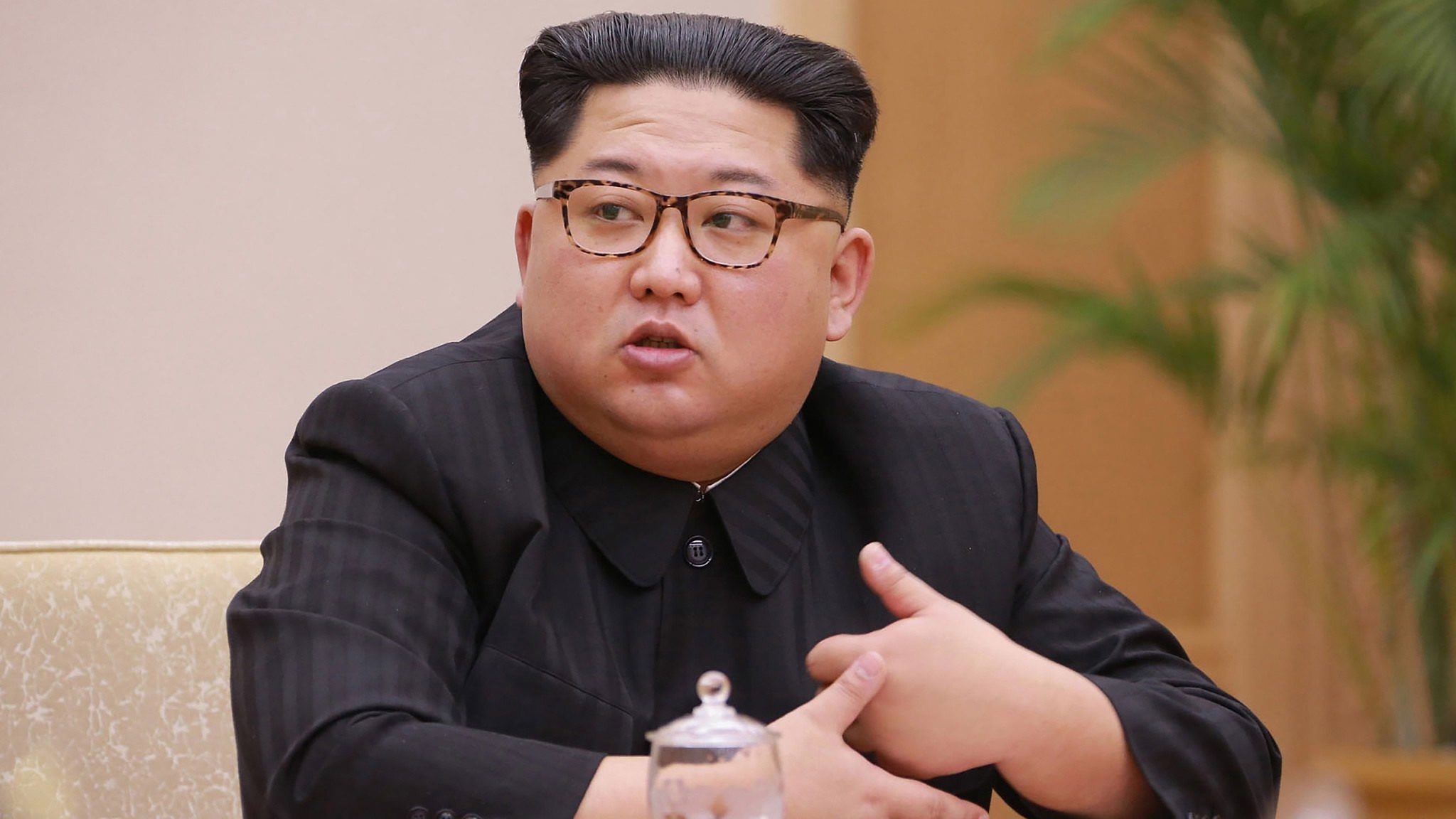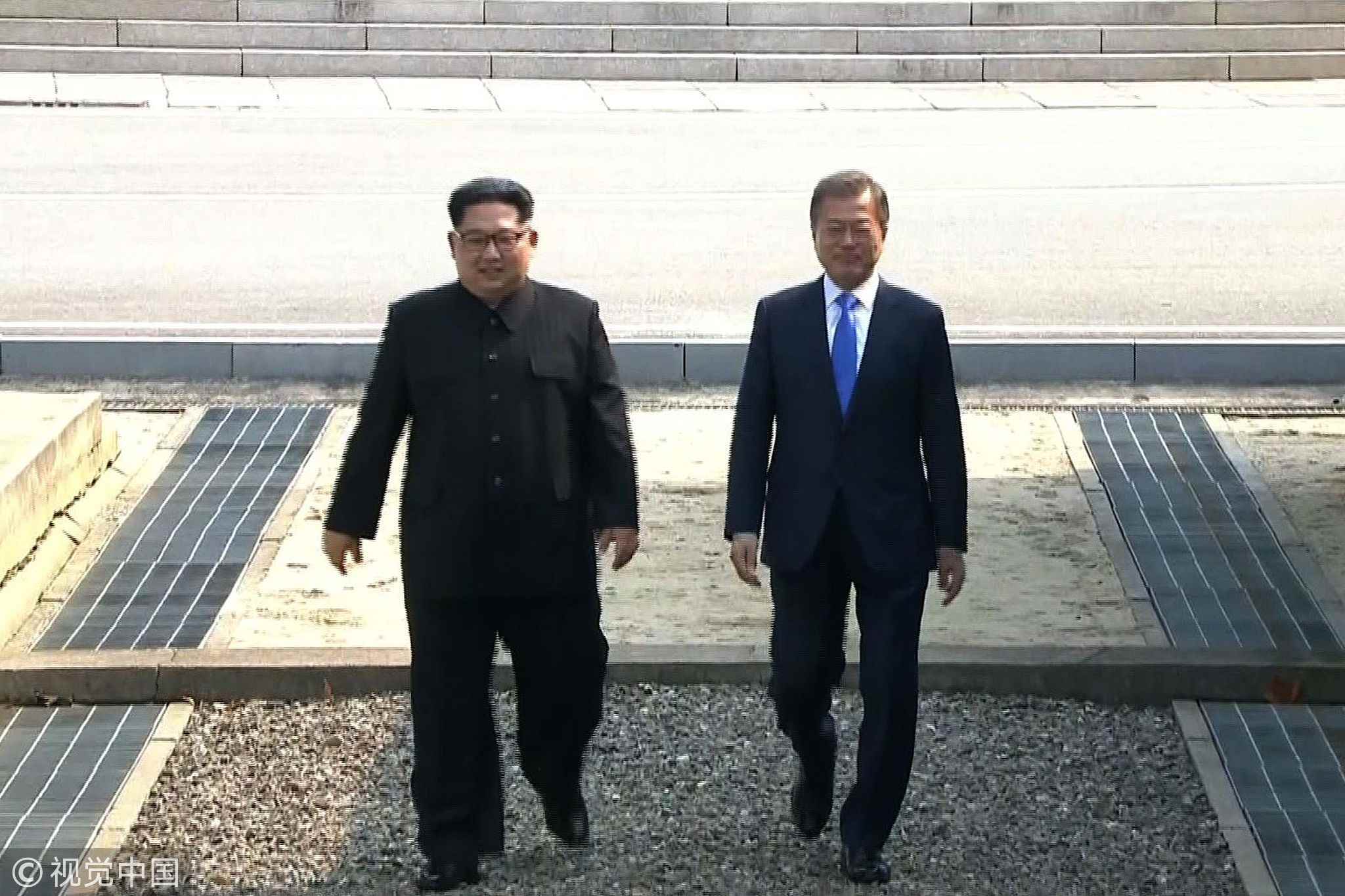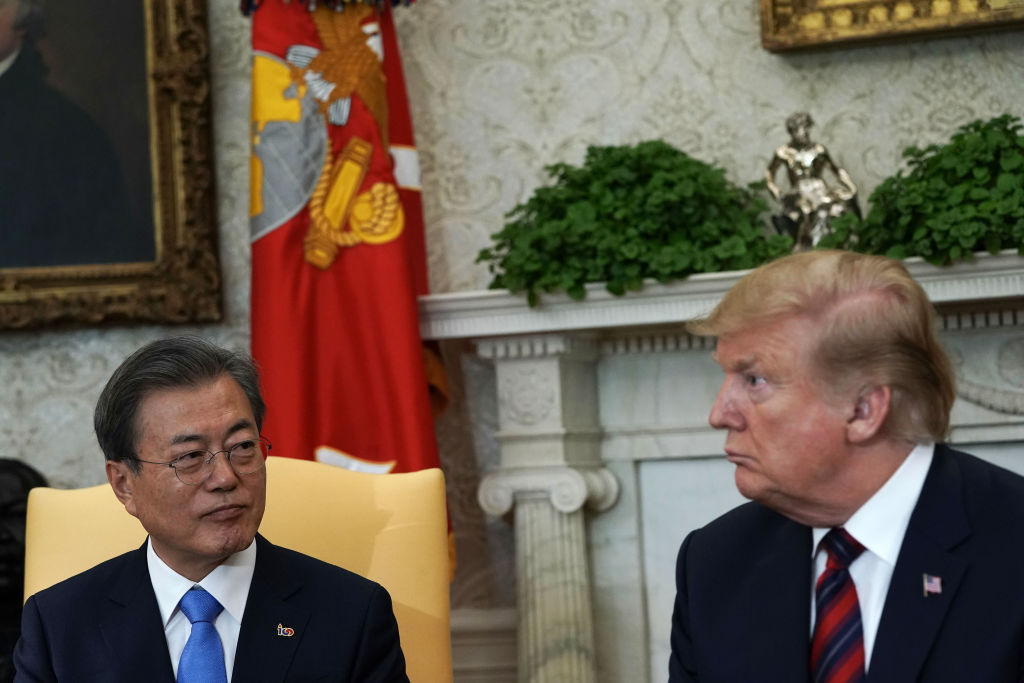
Opinion
22:34, 24-Apr-2019
As Kim Jong Un meets Putin, DPRK looks set to shun Moon
Updated
10:17, 25-Apr-2019
Chris Deacon

Editor's note: Chris Deacon is a postgraduate researcher in politics and international relations at the University of London and has previously worked as an international commercial lawyer. The article reflects the author's opinion, and not necessarily the views of CGTN.
The leader of the Democratic People's Republic of Korea (DPRK) Kim Jong Un will meet Russian President Vladimir Putin in Vladivostok on Thursday. This is the first summit between the two men, which also adds another world leader to Kim's recent flurry of diplomatic activity.
Much of this diplomatic activity, of course, began with the rapprochement between the two Koreas in the run up to and after the PyeongChang Winter Olympics, just over a year ago.
Two months after the close of the Games, the Republic of Korea President Moon Jae-in and Kim Jong Un met at Panmunjom – the "truce village" inside the Joint Security Area at the division of the two countries.
This was the first inter-Korean summit in 11 years and was hailed by the South's government as "a new start."

DPRK leader Kim Jong Un (L) and ROK President Moon Jae-in walk past the Military Demarcation Line that divides their countries at Panmunjom, April 27, 2018. /VCG Photo.
DPRK leader Kim Jong Un (L) and ROK President Moon Jae-in walk past the Military Demarcation Line that divides their countries at Panmunjom, April 27, 2018. /VCG Photo.
As Kim travels to Russia, the one-year anniversary of his meeting with Moon is fast approaching and the ROK has celebrations planned to mark the occasion this week.
But, despite broadly warmer inter-Korean relations, little concrete progress has been made during the past year. Moon's administration, therefore, saw the opportunity to celebrate the one-year anniversary of the April 2018 summit, and the signing of the Panmunjom Declaration, as a chance to jump-start the peace process.
In recent weeks, however, the DPRK has appeared lukewarm at best in its dealing with the ROK – not participating in weekly meetings at the joint liaison office situated in Kaesong or joint excavation activities within the demilitarized zone (DMZ).
In addition, earlier this month in a speech at the First Session of the 14th Supreme People's Assembly, Kim also directly criticized the South's role in the recent negotiations. He stated that the ROK "should not pose as a meddlesome mediator and facilitator" between the U.S. and DPRK.
Commentary critical of the South in the DPRK media has also increased in recent months, especially regarding the purchase of military equipment from the U.S., which was labeled as provocative.
Continuing with this pattern, the DPRK looks set not to show up at the anniversary celebrations this Saturday. Seoul's Ministry of Unification has confirmed that it has invited the North to take part in the celebratory events at Panmunjom, but most analysts currently believe that no representatives of the DPRK will attend.
Such an eventuality will be a major blow for Moon, who has staked a great deal of his political reputation on his inter-Korean peace process. If, as expected, the DPRK does not attend, it will be a glaring example of the recent one-sided nature of Moon's initiative.
There are major parallels here with the "Sunshine Policy" of former president Kim Dae-jung, launched almost two decades ago.
Initially hugely popular, this previous policy of reconciliation and cooperation with the DPRK was soon shunned by the ROK public, who saw little reciprocation coming from the north of the DMZ to their own country's goodwill.
Moon's policy on inter-Korean relations had similar intentions, although it has gone further than the Sunshine Policy by instigating unprecedented summits between the leaders of the DPRK and the United States.

U.S. President Donald Trump meets ROK President Moon Jae-in in the Oval Office of the White House in Washington, April 11, 2019. /VCG Photo
U.S. President Donald Trump meets ROK President Moon Jae-in in the Oval Office of the White House in Washington, April 11, 2019. /VCG Photo
In that regard, major U.S. involvement and overall support of the current peace process is a distinction between Moon's policy and the progress made in the past.
The DPRK's recent attitude to the ROK also reminds us that, no matter how many times Kim and Moon meet, there are major structural issues – such as international sanctions – that it is difficult for them to overcome alone.
This is one reason why U.S. involvement is so key. Many would argue that the greatest "prize" for the DPRK has always been the United States, rather than the ROK, and while peace talks with the latter may have been a useful conduit for Kim to signal his intentions to the world, they hold little use for him unless and until there is progress with the United States.
Seoul has confirmed that it will go ahead with the planned celebratory events whether Pyongyang attends or not.
But if the predictions are right and, come Saturday, as ROK officials celebrate their alleged new relationship with the DPRK, they stand at Panmunjom alone with no representatives of the DPRK, such messages of hope for a brighter inter-Korean future will surely ring hollow.
(If you want to contribute and have specific expertise, please contact us at opinions@cgtn.com.)

SITEMAP
Copyright © 2018 CGTN. Beijing ICP prepared NO.16065310-3
Copyright © 2018 CGTN. Beijing ICP prepared NO.16065310-3